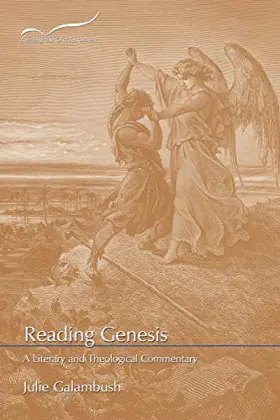

Reading Genesis: A Literary and Theological Commentary
Pages
194
Publisher
Smyth & Helwys
Published
2018
ISBN-13
978-1-64173-086-0
Genesis, a book of wondrous stories, is also a profound exploration of the human condition. From Cain and Abel to Joseph and his brothers, the narrative focuses on the corrosive effects of envy and resentment. Ultimately, it shows a path toward reconciliation.
Julie Galambush applies current historical, archaeological, and literary scholarship to create a nuanced and highly accessible commentary, explaining the history behind the writing of Genesis, the customs and laws that “went without saying” for ancient readers, and even the puns that enrich the original Hebrew but are lost in translation. She also addresses the challenges facing contemporary Jews and Christians who accept Genesis as sacred Scripture but reject practices the Genesis authors readily accepted, such as slavery and the “gifting” of women as concubines. Reading Genesis invites any reader, religious or otherwise, to listen in and to join in on this ancient conversation on what it means to be human
Julie Galambush applies current historical, archaeological, and literary scholarship to create a nuanced and highly accessible commentary, explaining the history behind the writing of Genesis, the customs and laws that “went without saying” for ancient readers, and even the puns that enrich the original Hebrew but are lost in translation. She also addresses the challenges facing contemporary Jews and Christians who accept Genesis as sacred Scripture but reject practices the Genesis authors readily accepted, such as slavery and the “gifting” of women as concubines. Reading Genesis invites any reader, religious or otherwise, to listen in and to join in on this ancient conversation on what it means to be human
Collections
This book appears in the following featured collections.
- Commentaries by Female Scholars by John Dyer
Reviews
Galambush’s compact and concise commentary successfully offers
a scholarly reading of Genesis and, thus, is worth referencing due to
its insightfulness on the basis of her emphasis on the literal reading
with historical implications. In particular, suggested discrepancies
in the text and responses to these may provide opportunities for
modern readers to read Genesis afresh. However, at the same time,
most of the assumptions of the commentary may be uncomfortable
for religious readers, though the author hopes that they will be
persuaded by her nonreligious, scholarly, and objective interpretation. The discomfort of religious readers with the commentator’s
assumptions, unfortunately, may be the very thing that compromises
the commentary’s ability to achieve its stated goal, that is, to bring
the reader back to the text.
